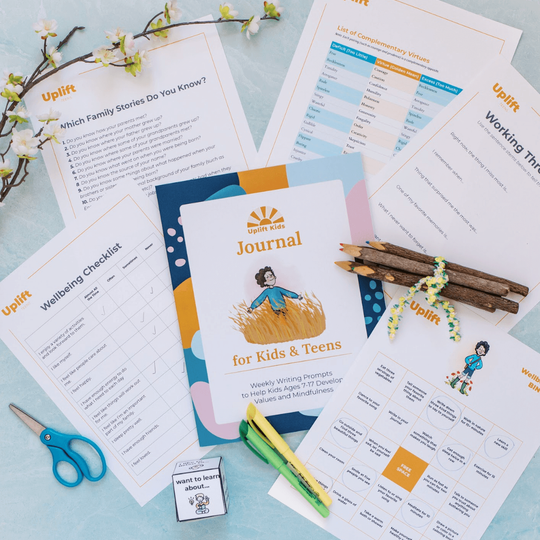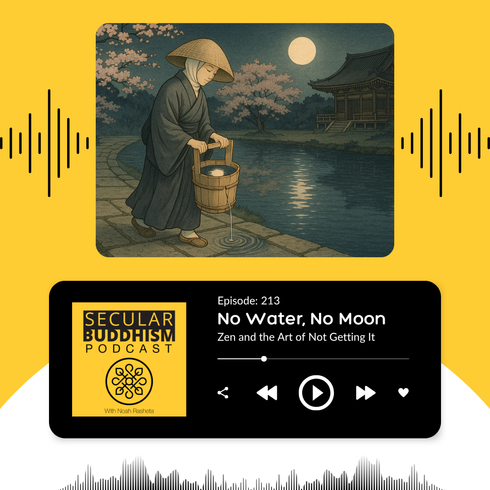
As parents, helping children navigate their emotions can often feel overwhelming. From tantrums to outbursts, understanding and managing emotions is an important skill that we must pass on to our kids. In my recent podcast episode with the team from Uplift Kids, we explored how to teach children about emotions through a mindful and values-based approach.
Why Emotional Awareness Matters
Children experience a wide range of emotions, and it’s essential to equip them with tools to understand and express what they feel. Teaching emotional intelligence at a young age helps children not only regulate their emotions but also fosters empathy, self-awareness, and resilience. This allows them to navigate life’s challenges with a deeper sense of understanding.
In our discussion, Jon, Amanda, and Michelle (co-founders of Uplift Kids) emphasized that emotional intelligence isn’t about eliminating negative emotions but about learning to identify and work with them. This is a key component of their curriculum, which combines modern psychology with ancient wisdom traditions, offering parents practical tools to introduce concepts like mindfulness, compassion, and emotional regulation.
Approaching Emotions Mindfully
Mindful parenting plays an important role in guiding children through emotional experiences. As parents, we may feel triggered by our children’s emotional intensity—especially when we are also experiencing strong feelings. However, by modeling calmness and emotional regulation, we can teach our children how to approach their own emotions with curiosity rather than resistance.
A technique Uplift Kids suggests is using an emotions chart, which helps children identify and label their feelings, and rank their intensity. This practice allows kids to map out what they’re feeling and engage in conversations about their emotions in a non-judgmental way. By naming emotions—whether they’re feeling frustration, sadness, or excitement—kids develop an emotional vocabulary that helps them navigate challenging situations.
Co-Regulation: Guiding Kids Through Strong Emotions
One of the key takeaways from our conversation was the importance of co-regulation. When children are overwhelmed, it’s often not the right time for deep conversations. Instead, parents can focus on creating a calm, empathetic environment where kids feel safe to experience their emotions. Once the emotional storm has passed, it’s easier to reflect on what happened, talk about the emotions involved, and help children understand their feelings.
A helpful practice that came up during the discussion is the FEEL acronym:
- Find the emotion.
- Engage with the emotion.
- Express it in a healthy way.
- Love and accept the emotion.
This process teaches kids that all emotions, even the uncomfortable ones, are valid and worth exploring.
Role-Playing and Embodying Emotions
Role-playing exercises can also be powerful for children, especially when it comes to embodying their emotions. Through games like charades, kids can act out emotions—like frustration or joy—and recognize how these feelings show up in their bodies. This gives them the chance to express what they’re feeling in a playful, non-threatening way, while also learning to recognize emotional cues in others.
Bringing Mindfulness and Wisdom into Parenting
Integrating wisdom traditions such as Buddhism and Stoicism, Uplift Kids creates lessons that go beyond emotional intelligence. Their approach ties emotional awareness to core values like compassion, resilience, and empathy, helping children see their emotions as part of a larger human experience. These lessons offer parents the opportunity to have meaningful conversations with their children about values, creating a stronger emotional foundation for kids to build upon as they grow.
Conclusion
Teaching children about emotions is not a one-time lesson; it’s an ongoing process. By using tools like those provided by Uplift Kids, parents can engage their children in conversations about emotions, helping them develop emotional intelligence in a thoughtful and mindful way. Whether it’s through role-playing, co-regulation, or simply being present with your child in moments of emotional intensity, fostering emotional awareness will equip your children to lead more connected, resilient lives.
For more resources on how to guide your kids through emotional awareness and values-based lessons, check out Uplift Kids.
Explore topics
Explore pages
Subscribe
Related posts
A DOSE OF WISDOM IN YOUR INBOX
Subscribe to the newsletter to receive time-honored teachings in your inbox. This content is aimed at helping you cultivate a greater sense of inner peace. You’ll also be the first to receive updates on podcasts, events, retreats, and workshops, and gain exclusive access to content available only to subscribers.




